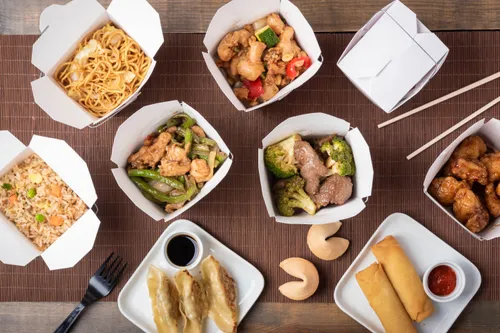
Where Do You Get Your Protein? Our 5 Favourite Plant Based Sources…

Plant based eating can open up a whole new world of exciting ingredients, techniques, and ideas. The time is now to seize the rapidly expanding interest of plant based foods that appeals to the growing number of vegans, vegetarians, meat reducers and health conscious individuals who do not consider themselves categorised by any single group or term.
“Where do you get your plant based protein?”
It’s the first thing that any person trying to make the transition to a plant based diet gets asked. We’ve been raised in a society that revolves around meat culture and which champions the supposed benefits of eating animal products. As a result plant based eating is thought to be nutritionally-lacking and sometimes unhealthy.
Dig a little deeper, of course, and you’ll find that this is a myth – a simple, yet clever, marketing trick from an industry that has dominated our food culture for a long time. PlantBased Magazine are committed to showing that plant based eating can be both nutritious and delicious.

There are plenty of great sources of plant based protein and more and more people are waking up to the truth. Getting your protein directly from the source, rather than second hand (via an animal) can mean great things for your body. Many athletes are taking the plunge into plant based living and the plant based food revolution shows few signs of slowing down.
Here are our 5 favourite plant based protein sources…
1) Lentils
Shown to lower cholesterol and reduce heart disease risk, lentils are thought of as a starchy protein. They can be used in place of mince in your spaghetti Bolognese or to bulk out a veggie burger. 9 grams of protein per 100g.
2) Quinoa
This gluten-free grain has been rising in popularity for its health benefits and high protein content. Replace in meals where you may usually have rice or as part of a tasty salad. 4 grams of protein per 100g.
3) Cashew Nuts
Cashew nuts have to be one of the greatest parts of plant based eating. They can make the base of a delicious dairy-free cheese or add substance and texture to that veggie curry, plus they are full of protein and lots of other goodness too! 18 grams of protein per 100g.
4) Tofu
Tofu often gets a bad reputation. It’s understandable – when not cooked correctly, it can taste bland and slimy, but once you nail it, you won’t be able to get enough. It’s full of protein and a far healthy addition to Asian cuisine than meat. 15 grams of protein per 100g.
5) Pumpkin seeds
All seeds tend to be high in protein, but pumpkin seeds come top of the pile. Sprinkle on your salad or top that raw cheesecake with them and you’ll know you’re not only getting a good chunk of your protein needs, but a wealth of other nutritional benefits too. 24 grams of protein per 100g.
PlantBased Magazine is launching in the UK, with the first issue on sale this September. The new title reflects this rapidly growing interest in plant based diets and lifestyle that appeals to more than those who have already adopted a vegan or vegetarian diet. The food revolution has begun.
PlantBased Magazine goes on sale 14th September 2017 into national stores including Sainsbury’s, Tesco, Waitrose, WHSmith, M&S and health stores nationally.














































